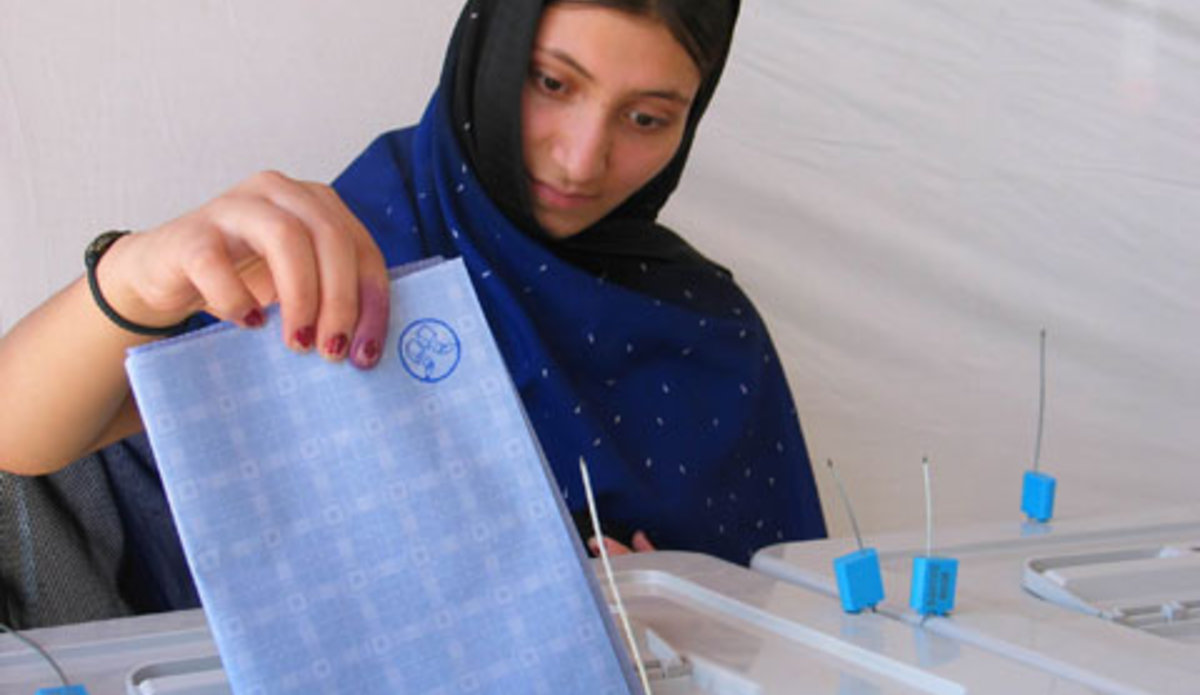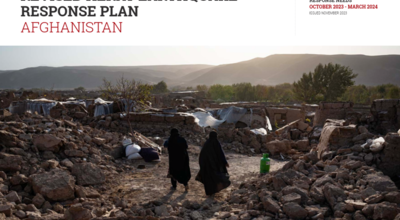Afghan e-Tazkira distribution to begin in March
KABUL - Following weeks of bickering about the process of decision-making over the technical and legal aspects of the Presidential elections, attempts are underway to speed up the process. A recent decree from Afghan President Hamid Karzai, issued on 31 January, called for the process of distributing e-Tazkira or computerized national identity cards to be expedited.
At the same time the Independent Election Commission of Afghanistan (IEC) has called on the members of the Parliament to speed up their final decision on both the Electoral Law, and the Law on the Structure, Duties, and Mandate of the IEC.
The seven-point Presidential decree has set 21 March 2013 as the date of starting distribution of the electronic ID cards, the first of such national project in Afghanistan.
In order to meet the goal on time, the President has also asked concerned Government ministries to speed up their efforts.
“The Ministry of Interior (MoI) is responsible to complete the overall process of information gathering in cooperation with the Independent Directorate Local Governance (IDLG) and Central Statistic Organization (CSO) and officially start the distribution of e-Tazkira from 21 March 2013,” said the decree.
The MoI is currently hiring staff to establish registration teams throughout the country to kick off collection of required information from Afghan nationals. The Ministry administered written examinations in December 2012 in Kabul to select 550 successful candidates out of 5,507 applicants to set up 50 registration teams in Kabul.
“Similar recruitments will be carried out in all the provinces of the country to form a total of 401 registration teams throughout the country,” said Abdul Ghaffar Masoom Farhad, who heads the electronic ID cards unit at the MoI.
At the same, the Presidential decree has asked the Ministry of Communications and Information Technology (MoCIT) to ensure availability of all technical facilities by 20 March 2013 to MoI in those provinces of the country which have no or limited access to internet, for registration of the information of Afghan citizens and transfer of information to the MoI data centre.
The MoCIT is responsible for shipping necessary technical equipment to the provinces. According to the sources at MoCIT, the Ministry signed a US$ 101 million contract in February 2010 with a foreign company, Grand Technology Resources (GTR), to put the required system in place for distribution of the electronic ID cards. The agreement includes establishment of data centres and identity card printing centres.
On the other hand, the decree requested the Ministry of Finance to ensure financing of the process of e-Tazkira distribution while the MoI had been tasked with ensuring security at all distribution sites.
Responding to recommendations from the Council of Ministers, the IEC announced recently that it would “allow the usage of old voter registration cards”, while at the same time approving, “in case the e-Tazkiras were issued, the eligible voters might use their e-Tazkiras in the next Presidential and Provincial Council elections in 2014”.
The IEC Head, Fazal Ahmed Manawi, appearing in Channel 1 “Kabul Debate” on 30 January, said with regards to old voter registration cards the IEC would not be in a position to implement what the Council of Ministers had asked. He said it would be impossible for election body to identify the counterfeit voter cards. He explained that the IEC didn’t have a record of those cards in its database. "We do not have the data, our database does not have the necessary standards to locate those cards," he added.
While echoing Mr. Manawi’s view that the eligible voters could use their e-Tazkiras for voting instead of voter registration cards, Ziaul Haq Amarkhil, the head of the IEC Secretariat, told a recent news conference that IEC voter registration teams wouldn’t go to those districts where the electronic IDs had been distributed.
In its voter registration drive, the IEC has planned to register four categories of people: those who have reached the age of 18, those who failed to register in the past, those who lost their old voter registration cards or changed their electoral constituencies, and those whose cards are damaged to an extent that the voter’s characteristics are invisible.
The election body is also advocating for accelerating finalization of legal framework governing elections. National Tolo TV channel reported on 1 February that Mr. Manawi, the IEC Head, asked the members of the Afghan Parliament to speed up the process of passing the Electoral Law and the Law on Structure and Responsibilities of IEC.
In the Channel 1 debate, Mr. Manawi assured those who are concerned about the use of old voter registration cards that the IEC "still has alternative plans and ideas" for ensuring a speedy process.
“There is still ample time, we will continue our consultations to ensure the process of elections would be acceptable to the public,” he said.
By UNAMA Kabul
Related articles:
1. Voter registration process to begin by April-end: IEC
2. Competitive tests for recruiting members of electronic identity cards registration teams
3. As UN experts assess Afghan electoral needs, IEC says poll planning on track
4. UN closely follows passage of Afghan electoral laws, says top UN envoy
 UN
UN








